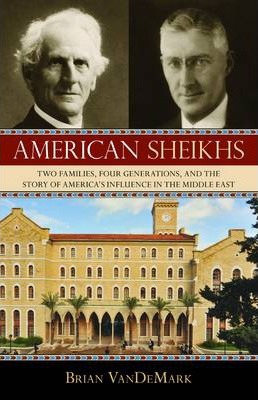Before 1945, AUB’s history is largely positive. Despite American nationalism and presumptions of Manifest Destiny, Middle Easterners generally viewed the school as an engine of constructive change and the United States as a benign force in the region. But in the post-World War II era, with the rise of America as a world power, AUB found itself buffeted by the strong winds of nationalist frustration, Zionism and anti-Zionism, and-eventually-Islamic extremism. Middle Easterners became more ambivalent about America’s purposes and began to see the university not just as a cradle of learning but also as an agent of undesirable Western interests.
This story is full of meaning today. By revealing how and why the Blisses and Dodges both succeeded and failed in their attempts to influence the Middle East, VanDeMark shows how America’s outreach to the Middle East can be improved and the vital importance of maintaining good relations between Americans and the Arab world in the new century.







